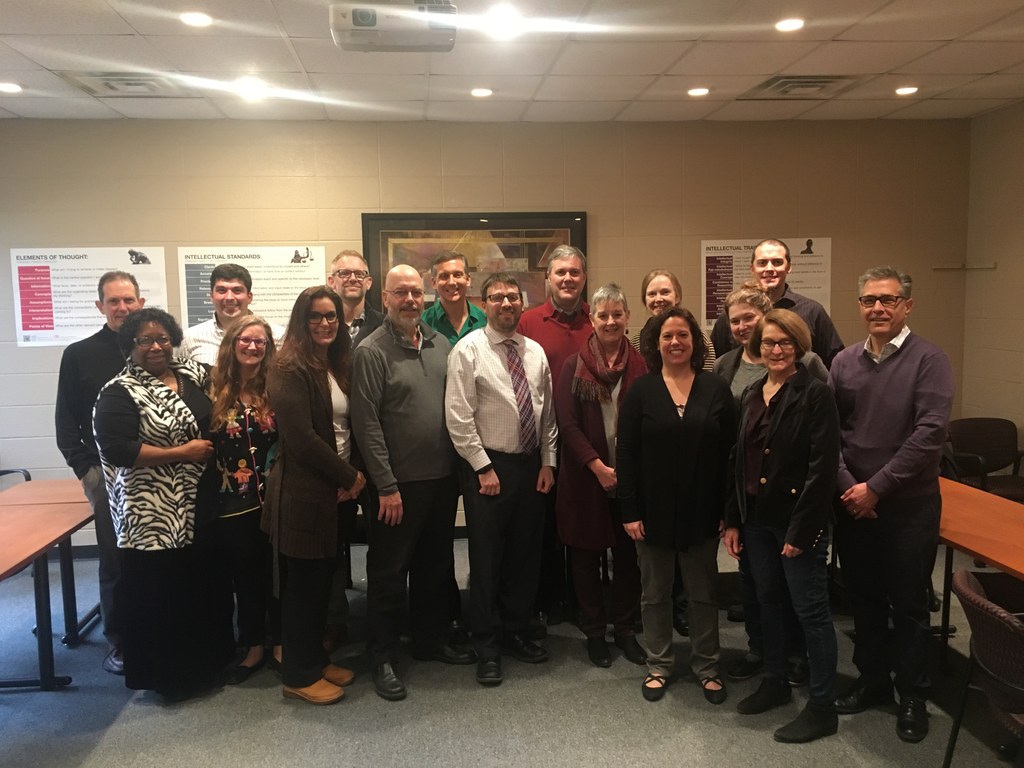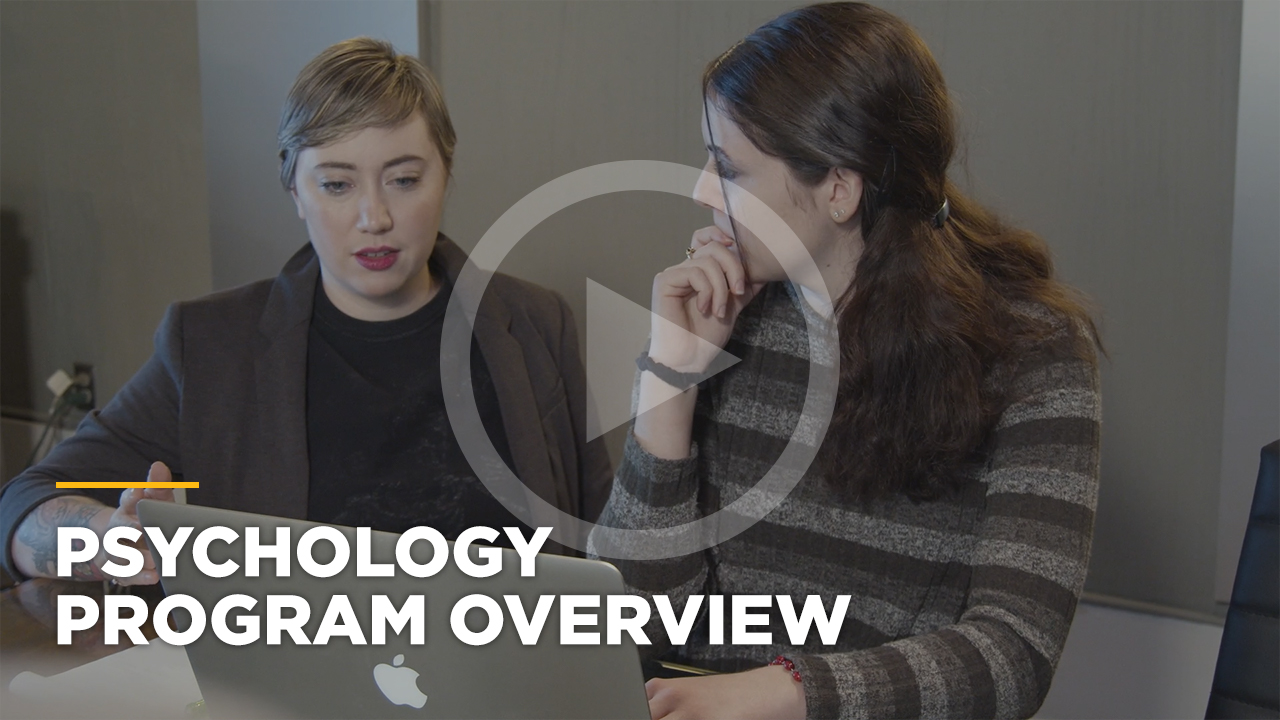Yes, the online BS in Psychology program is designed to be fully asynchronous. This means that you can access course materials, participate in discussions and complete assignments at a time that suits your schedule. Asynchronous learning offers greater flexibility for students who may have work, family or other commitments.
Online Bachelor of Science in Psychology
The online Bachelor of Science (BS) in Psychology at the University of Louisville (UofL) is designed to help individuals understand how various aspects of human behavior influence everyday decision-making.
This nationally recognized bachelor’s program, offered by the College of Arts and Sciences, explores psychological concepts, including brain-behavior relationships, abnormal psychology, cognition, mental health and human development. Our curriculum integrates these topics with essential research methods, providing a comprehensive foundation of psychological science.
Additionally, earning a bachelor’s in psychology online prepares you for various career opportunities by developing your interpersonal communication skills and knowledge. Whether you aspire to work in counseling, human resources, or further academic research, the skills and insights gained from this degree can be pivotal in pursuing various professional paths.
Academic Year Tuition
Online BS in Psychology Program Highlights
- Become an intelligent consumer of information and an active investigator within the fields of cognition, behavior and brain science.
- Develop technological skills and familiarity with research methods and statistics, as well as the analytic skills necessary for solving personal, professional and societal problems.
- Build a versatile set of skills and knowledge, for which employers around the country actively recruit.
- Understand the factors influencing human behavior and how to apply psychological principles in various settings.
- Earn a research-based psychology degree taught by the same research-focused faculty within the Department of Psychological and Brain Sciences as the on-campus program.
- Build upon your associate degree or transfer in equivalent credit from an accredited institution.
- Take advantage of the flexibility and convenience of 100% online classes.
- Ready yourself for a variety of careers in psychology, including roles in counseling, human resources, and research. You’ll also be equipped for graduate studies in psychology or related fields.
START YOUR APPLICATION REQUEST INFORMATION
Complete this degree on your time through fully online classes.
Learn MoreTransfer in previous credit or take general education and major core courses at UofL.
Learn MoreTake advantage of UofL’s military-friendly rate of $250 per credit hour (for active duty).
"Psychology is relevant for almost everything. It’s relevant for business, it’s relevant for nursing, it’s relevant for healthcare and mental healthcare… But it’s also really relevant in non-profits and in dealing with special populations and social issues."
LORA HAYNES, PH.D.ASSOCIATE PROFESSOR
PSYCHOLOGY AND BRAIN SCIENCES
Online BS in Psychology Outlook
What Can I Do with a Bachelor’s in Psychology?
Earning a psychology degree prepares you for a wide variety of career opportunities. According to the National Association of Colleges and Employers, hiring managers seek employees with leadership, teamwork, communication, and problem-solving abilities, above all others. This program equips you with robust critical thinking and research skills and while developing your understanding of foundational psychological concepts, to make you succeed and stand out in the career path of your choice.
Many bachelor’s in psychology graduates pursue careers as a Substance Abuse, Behavioral Disorder, and Mental Health Counselor, which according to the Bureau of Labor Statistics (BLS), the demand is expected to grow an astounding 25% (bls.gov, 2019-2029).
Many graduates also pursue careers in the following fields:
- Human resources
- Mental Health
- Market research
- Public relations
- Family advocacy and support
- Case management
- Counseling
- Non-profit organizations
- Forensics
- Rehabilitation
This degree can be a stepping stone for pursuing a career as a psychologist. According to BLS, the average salary is $82,180 (bls.gov).
Online BS in Psychology Application Deadlines
| Preferred Application Deadline | Term | Start Date |
|---|---|---|
| August 1 | Fall | August |
| December 1 | Spring | January |
| April 1 | Summer | May/June |
Note: We admit students on a rolling basis. The preferred deadlines help you complete the application process on time, be notified of acceptance and enroll before the term begins. We review applications as they become complete, and admit students for a specific term up to the day classes start. We recommend you work on and submit your complete application well in advance of the preferred deadline, as obtaining transcripts and other materials may take more time.
How to Apply for the Online BS in Psychology
- Start your application for undergraduate admission
- Submit $30 non-refundable application fee
- Complete any checklist items listed on your Application Portal*
- Request official transcripts from all previously attended institutions. Transcripts are only accepted directly from the institution(s) by email: adetran@louisville.edu (recommended) or mail: University of Louisville, Office of Admissions, Dept AO, Louisville, KY 40292
- Create a financial plan
START YOUR APPLICATION REQUEST INFORMATION
Online BS in Psychology Admissions Requirements and Materials
New Students and Transfer Students with less than 24 transferable credits from accredited institutions must have:
- High school diploma from an accredited institution (GED or equivalent also accepted)
- Minimum high school GPA of 2.5 on a 4.0 scale; AND for transfer students, a minimum college GPA of 2.0 (applicants who do not meet the minimum GPA may inquire about conditional acceptance)
- Composite ACT* score of 21 or higher (test optional admission is granted on a case-by-case basis)
Transfer Students with 24 or more transferable credits from accredited institutions must have:
- Minimum college GPA of 2.0 on a 4.0 scale (applicants who do not meet the minimum GPA may inquire about conditional acceptance)
*Your Application Portal:
Once you have started an undergraduate application, you can check the status and review any additional checklist to-do items. Log in to your application using the email address you used to apply for admission and your password. Your checklist items may include additional materials or documentation that facilitate a smooth admissions process. You will also have access to important contact information and next steps after an admissions decision is made.
No ACT/SAT? Test-optional admissions are granted on a case-by-case basis and require a comprehensive review of high school transcript, including grades and college-preparatory courses. A personal statement may be requested during the admissions review process.
Transfer Credit for Online BS in Psychology Students
Students may transfer up to 60 hours from a community college and up to 90 hours from an accredited 4-year college. Transfer applicants must have a minimum college GPA of 2.0 to be admitted in good standing.Review the Transfer Evaluation System to get an idea of how many credits you'll be able to transfer in toward your UofL bachelor's degree, and visit our General Transfer Student Page for more details.
Are you a KCTCS student? KCTCS students can transfer completed associate degrees in their entirety and begin immediately with online upper level coursework at UofL. Visit our KCTCS Transfers Page for more information.
See the UofL Transfer Credit Policy for more information.
Online BS in Psychology Courses
The online bachelor’s in psychology from UofL is a 121 credit hour program. The program is 100% online. Courses are delivered asynchronously in standard term length. See below for curriculum components
- General Education (Cardinal Core) Requirements: 31 credit hours
- Arts & Sciences Requirements: 13-15 credit hours
- Psychology Required Core Courses: 42 credit hours
- Supporting Courses: 12 credit hours
- Electives: 21-23 credit hours
General Education Requirements
| Courses | Hours |
|---|---|
| General Education Requirements* | 31 |
| The following courses are required by the program and can satisfy the respective General Education Requirement: | |
| PSYC 201 Introduction to Psychology4,7 | |
| Some other courses approved as options for satisfying program requirements (e.g., MATH 109) may also satisfy General Education requirements | |
| Minimum Total Hours | 31 |
Arts & Sciences Requirements
| Courses | Credit Hours |
|---|---|
| GEN 100 Student Success Center First Year Experience GEN 101 Arts & Sciences First Year Experience |
1 |
| Foreign Language1 | 6-8 |
| Electives in Humanities or Natural Sciences at the 300-level or above2 | 6 |
| WR—two approved courses at the 300 level or above3 | 3 |
| Minimum Total Hours | 13-15 |
Program/Major Requirements
| Courses | Credit Hours |
|---|---|
| Department of Psychological and Brain Sciences - Required Courses | |
| PSYC 201 Introduction to Psychology4,8 | 3 |
| PSYC 301 Introduction to Social Statistics5,8 | 3 |
| PSYC 302 Research Methods for Psychology8 | 3 |
| Core Requirements | |
| PSYC 305 Brain and Behavior | 3 |
| PSYC 306 Life Span Developmental Psychology | 3 |
| PSYC 307 Cognitive Processes | 3 |
| PSYC 308 Foundations of Psychopathology | 3 |
| Graduation requirement or culminating undergraduate experience | 3 |
| PSYC Electives (300 level or above) 6,7 | 18 |
| Minimum Total Hours | 42 |
Supporting Courses
| Courses | Credit Hours |
|---|---|
| Social Science electives (300 level or above), Natural Science electives (200 level or above), or CMDS courses | 12 |
| Minimum Electives | 17 |
| Minimum Total Hours for Graduation | 121 |
* All degrees require the completion of the university-wide General Education Program. Some General Education requirements may be met in the requirements for the major or supporting coursework, in which case additional electives may be required to complete the minimum hours for the degree.
1Completion of the second semester of a single foreign language; hours will vary depending on the language taken.
2 In addition to courses counted toward Cardinal Core.
3May be incorporated into other degree requirements.
4 Fulfills a Cardinal Core Requirement.
5 Students should confirm any substitute class with the department prior to enrollment. Students who substitute a statistics course from another department will need to take an additional Psychology elective to complete the required number of Psychology hours for the program.
6 At least 50 of the total minimum hours required for the degree must be at the 300 level or above.
7 Students who satisfy Cardinal Core Requirements by courses defined by the program will require additional electives to complete the minimum hours for the degree.
8 Grades of C minus or below are not accepted.
START YOUR APPLICATION REQUEST INFORMATION
Core Course Descriptions
Online BS in Psychology Success Team
Online BS in Psychology Faculty

Visit the department website to see a list of UofL’s psychology faculty.
Online BS in Psychology FAQ
-
Is this program fully asynchronous?
-
How many weeks is each class?
Each class in the online BS in Psychology program typically runs for a duration of 15 weeks.
-
Can I be a therapist with this degree?
While a BS in Psychology is a valuable and foundational degree, it's important to note that becoming a licensed therapist typically requires additional education and training. Most therapists hold at least a master's degree in psychology or a related field and must complete supervised clinical hours to obtain licensure. Our program can be a great steppingstone towards furthering your education if your goal is to become a licensed therapist.
-
How much time per week will I spend on this program?
The amount of time you will need to dedicate to the program each week can vary depending on the individual and the specific courses you are taking. As a general guideline, you should expect to spend approximately 2-3 hours per credit hour weekly for your course(s). This includes time for reading, assignments, discussion participation and studying. Keep in mind that time management and study habits play a significant role in your success in the program.
-
Is financial aid available for this program?
Yes, there is financial aid available for this program. You can learn more by visiting our Financial Aid tab on the Tuition page.
